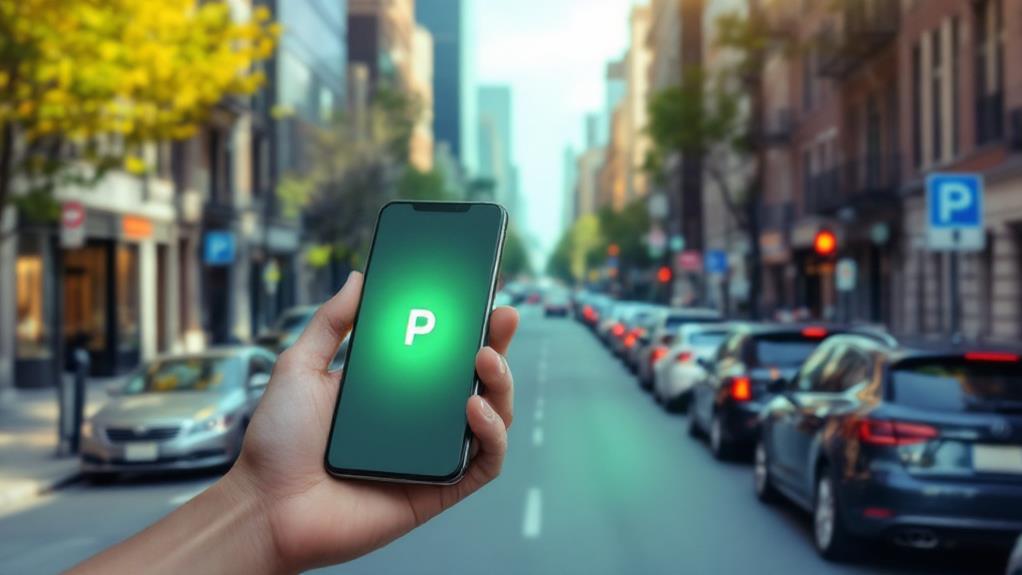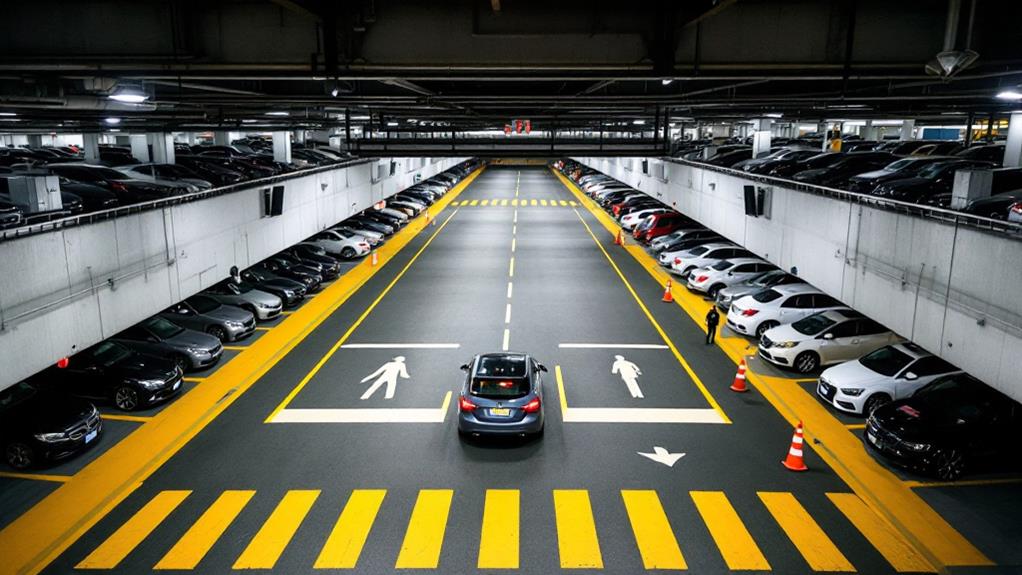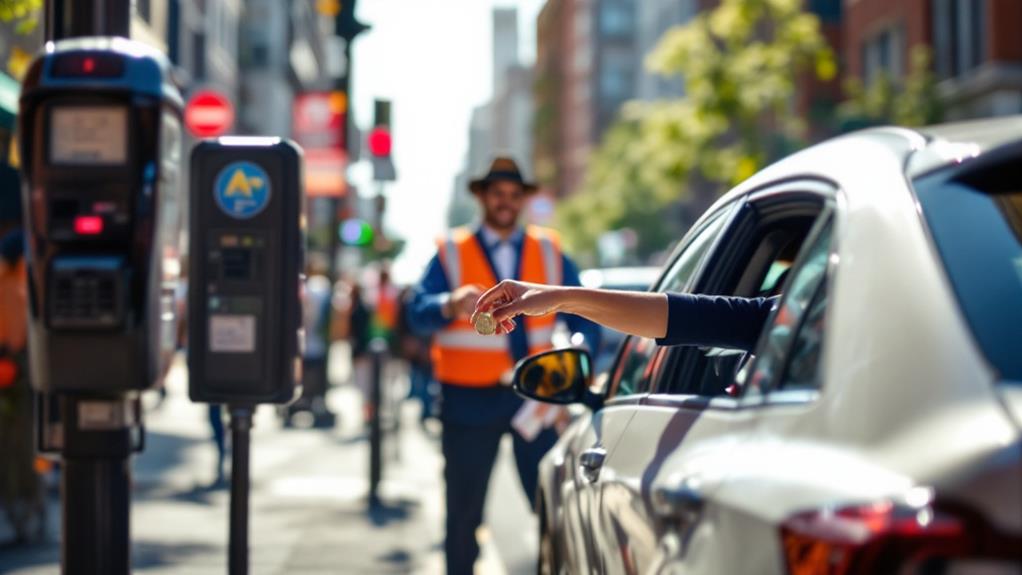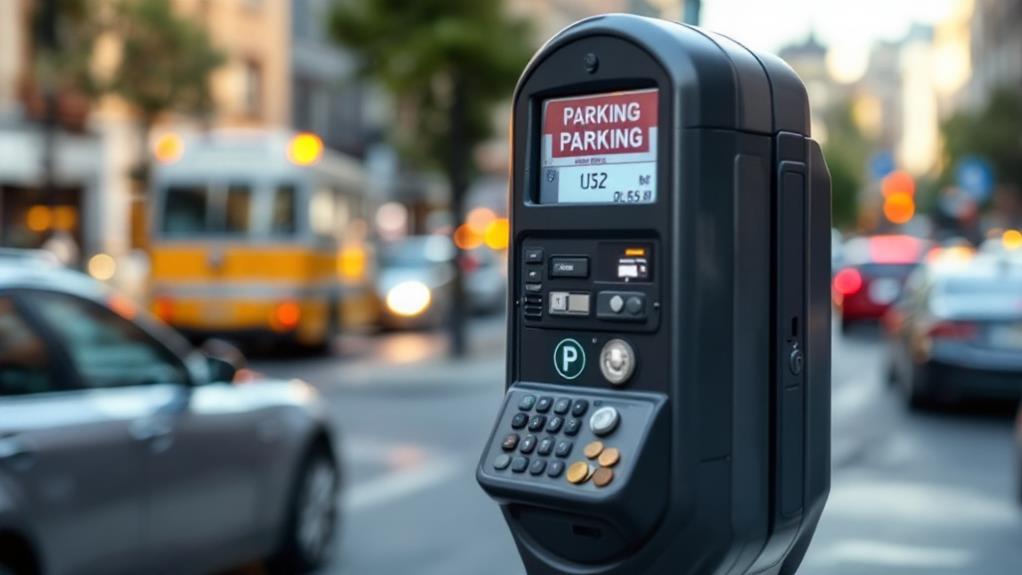The Hidden Costs of Parking in the City and How to Avoid Them
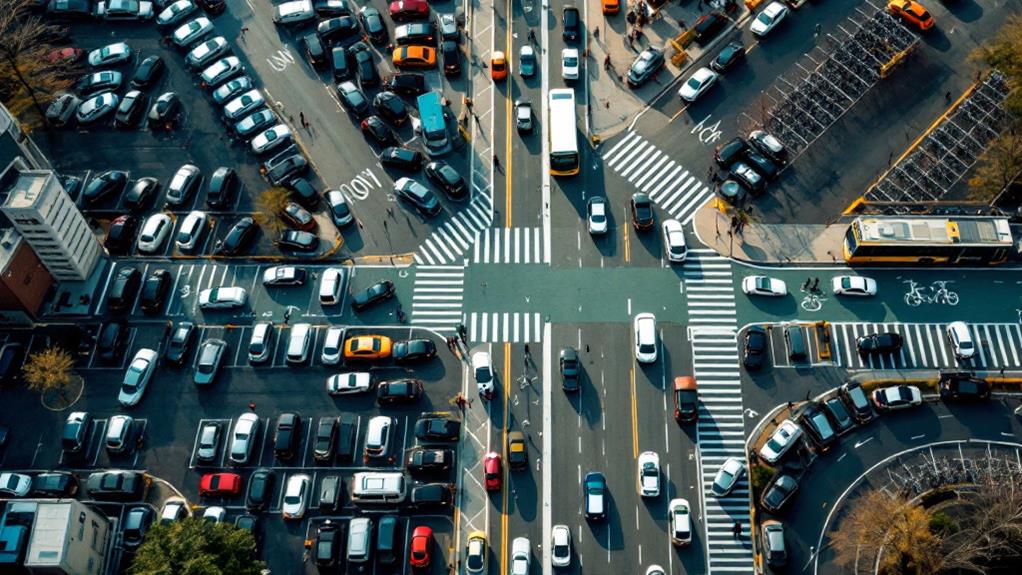
Parking in cities comes with hidden costs that go far beyond the meter price. You're paying for expensive infrastructure, increased housing costs, and environmental damage. Minimum parking requirements can raise housing prices by up to 10% and contribute to urban sprawl. Excess parking leads to more driving, congestion, and carbon emissions. To avoid these costs, consider alternatives like public transit, biking, or car-sharing. Look for housing without bundled parking to save money. Support policies that reduce parking minimums and implement smart management strategies. Cities are transforming their approach to parking, and understanding these changes can help you maneuver urban life more effectively.
The True Cost of Parking
Beyond the obvious costs of parking meters and garage fees, the true expense of parking in cities runs much deeper. You might be surprised to learn that parking spaces can cost developers up to $37,000 to build in a garage and $4,200 for surface parking. These hefty price tags greatly increase the cost of new buildings, particularly for affordable housing projects.
Minimum parking requirements imposed by cities can drive up market-rate housing prices by as much as 10%. This burden falls heavily on affordable housing developers, making it harder to create cost-effective living spaces. Urban planning expert Donald Shoup has long argued that these requirements are often arbitrary and excessive.
The cost of driving also increases in neighborhoods with parking minimums. You're 28% more likely to drive to work in these areas, contributing to higher congestion, safety risks, and carbon emissions. Ironically, many parking spaces go unused, with average occupancy at only 50% of required spots. This oversupply is particularly evident in buildings with larger units and those near high-quality transit. By reforming parking policies, cities can improve affordability and encourage more sustainable transportation options.
Environmental Impact of Excess Parking
While the financial costs of excess parking are significant, the environmental impact is equally concerning. You might not realize it, but those expansive parking lots are doing more harm than just taking up space. They're creating impervious surfaces that increase stormwater runoff, raising the risk of flooding in your city. What's more, these vast concrete expanses contribute to the urban heat island effect, making your surroundings hotter and driving up energy costs for cooling nearby buildings.
But that's not all. The production and maintenance of parking infrastructure release substantial greenhouse gas emissions, exacerbating climate change. You're also losing irreplaceable green spaces and habitat areas to these lots, which negatively impacts local biodiversity and reduces indispensable ecosystem services. Think about it: all that land could be used for more sustainable purposes like affordable housing, parks, or public transit infrastructure.
Parking's Effect on Housing Affordability
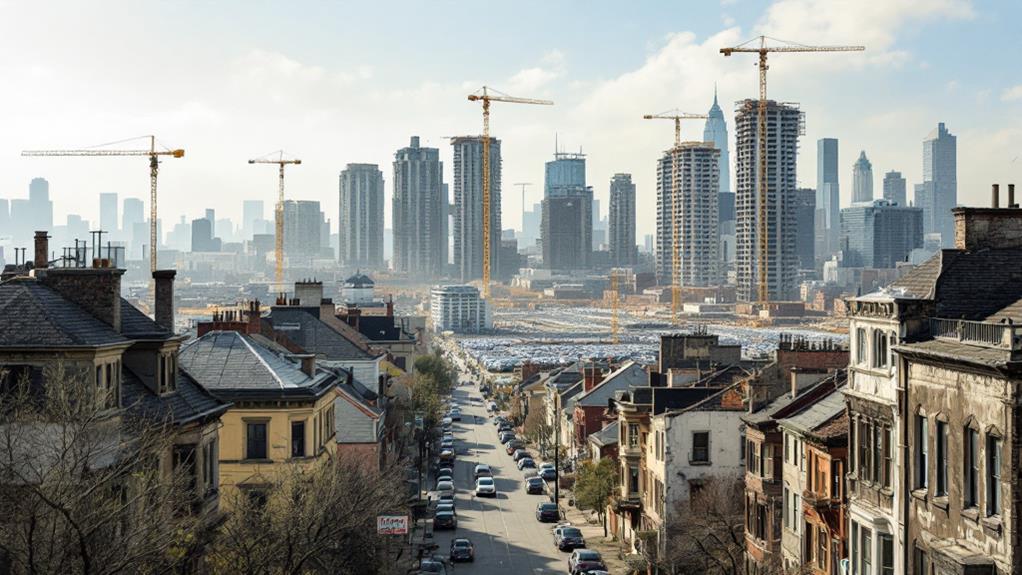
You might not realize it, but parking requirements are quietly driving up housing costs in your city. Minimum parking requirements can increase the price of new market-rate housing developments by up to 10%. These policies burden affordable housing developers, limiting the number of units they can build and exacerbating the housing affordability crisis.
The cost of creating parking spaces is substantial. Each garage space can cost up to $37,000, while surface parking spaces can reach $4,200. These expenses are often passed on to you, the homebuyer or renter. In addition, surface parking reduces the available land for housing, further driving up costs.
To address this issue, municipalities should reform their parking policies. Lowering requirements, implementing shared parking districts, and providing credits for factors that reduce parking need can improve housing affordability and accessibility. By rethinking parking supply, cities can create more housing options at lower costs.
It's important to understand that these policies affect more than just the cost of housing. They shape our behavior too. Residents in neighborhoods with parking minimums are 28% more likely to drive to work, contributing to increased traffic and environmental issues.
Alternatives to Minimum Parking Requirements
Instead of rigid minimum parking requirements, cities can adopt more flexible and innovative approaches to manage parking. By ending parking minimums, municipalities can reduce the hidden costs of parking and promote more efficient land use. You'll find that removing off-street parking requirements allows developers to build housing and commercial spaces without the burden of providing unnecessary parking spots per unit.
Strong Towns advocates for ending these outdated parking rules, arguing that required parking artificially inflates costs and hinders urban development. By implementing smarter parking management strategies, you can help create more energetic, walkable communities. Consider these alternatives to minimum parking requirements:
- Market-based pricing for on-street parking
- Shared parking arrangements between businesses
- Incentives for alternative transportation options
These approaches can lead to more efficient use of space and reduce the overall cost of development. You'll uncover that by moving away from rigid parking minimums, cities can address the hidden costs of parking while promoting sustainable growth. Embracing these alternatives allows for greater flexibility in urban planning and can ultimately create more affordable, livable cities for everyone.
Smart Parking Management Strategies
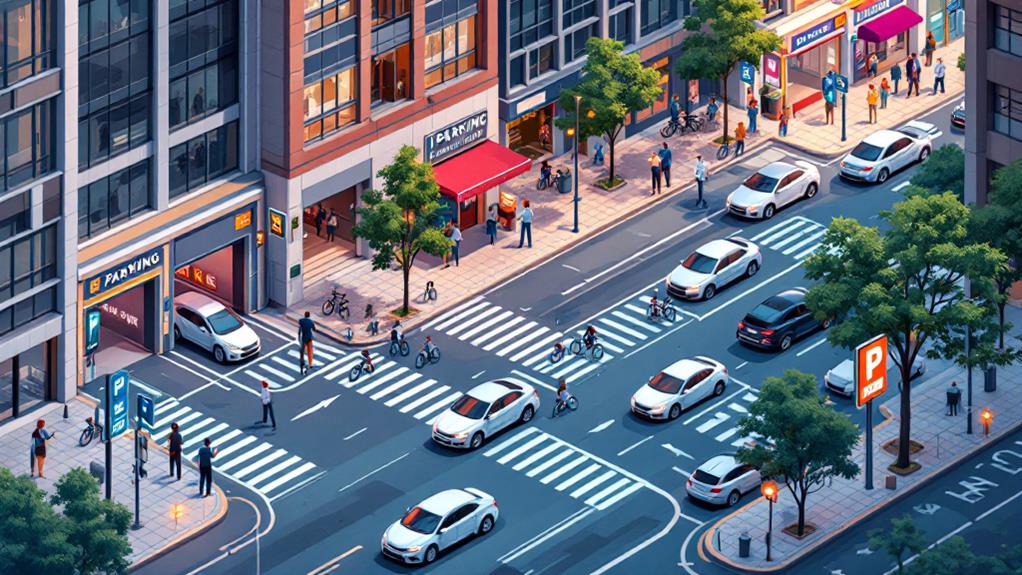
Numerous smart parking management strategies can help cities address the hidden costs of parking while improving urban mobility. You'll find that implementing variable pricing for on-street parking is a transformative measure. By adjusting rates based on demand, cities can maintain an ideal parking occupancy rate of 85%, reducing the time you spend cruising for parking spots.
Another effective approach is establishing parking benefit districts. These use meter revenue to fund neighborhood improvements, incentivizing more efficient use of parking spaces. You'll also benefit from unbundling parking costs from housing prices, allowing you to opt-out of unnecessary parking and potentially save money.
Flexible parking requirements offer developers the option to provide less parking in exchange for transit passes or shared mobility options. This strategy helps reduce oversupply and encourages alternative transportation methods.
Future of Urban Parking Solutions
The future of urban parking solutions promises to revolutionize how we think about and use parking spaces in cities. As autonomous vehicles become more common, you'll likely see fewer traditional parking garages and lots. This shift will free up precious urban land for new uses, potentially reducing the high cost of parking and transforming cityscapes.
You'll experience a more integrated approach to parking, with multimodal transportation hubs combining car parking, public transit, and bike-sharing options. This will save you time spent searching for parking and encourage sustainable mobility choices. Dynamic pricing systems will adjust parking meter rates based on demand, helping you find spots more efficiently and potentially lowering costs during off-peak hours.
Cities around the world are reimagining parking spaces, converting them into:
- Lively public plazas where you can relax and socialize
- Urban gardens that bring nature into your concrete jungle
- Pop-up shops that inject life into once-dull parking areas
Smart parking technologies will become ubiquitous, guiding you to available spots through mobile apps and real-time information systems. This will reduce time spent circling for parking, easing traffic congestion and lowering emissions. As car ownership patterns change, you'll see a transformation in how cities manage and utilize parking infrastructure, creating more livable urban environments.
